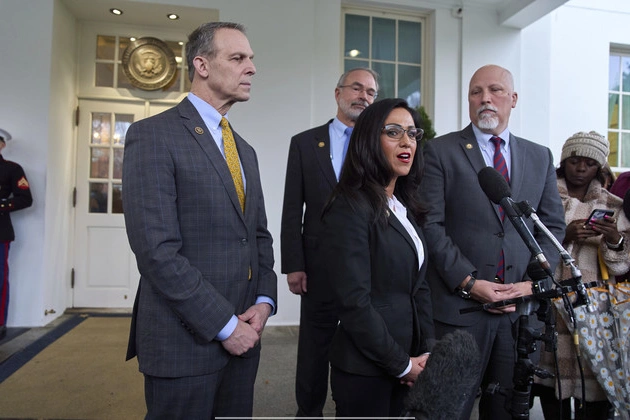
Republican Unity on Spending Bills
Republican unity on spending bills has long been a challenge on Capitol Hill, with House Republicans traditionally relying on Democratic votes to pass funding legislation. However, recent developments have reshaped this dynamic, particularly with President Donald Trump’s active involvement.
In a significant vote that surprised many, the House passed a seven-month funding patch with a narrow margin, solely with Republican support. This marked a departure from past practices and signaled a shift in the balance of power in spending negotiations.
President Trump’s Influence
President Trump played a pivotal role in rallying Republican support for the funding bill. Through a combination of lobbying efforts, promises of future spending cuts, and policy concessions, Trump managed to secure backing even from hard-line factions like the Freedom Caucus.
Trump’s intense pressure campaign, both behind closed doors and in public statements, underscored his determination to reshape the narrative around spending negotiations. His personal involvement in key strategy meetings and direct outreach to wavering lawmakers highlighted the significance of this funding vote.
Implications for Future Negotiations
The unity displayed by Republicans on this funding bill represents a significant moment in fiscal negotiations. It not only sets the stage for future talks but also poses challenges for Democrats seeking to leverage spending issues in the future.
Looking ahead, Republicans are poised to push for deeper spending cuts and policy priorities aligned with Trump’s agenda. The Freedom Caucus, in particular, is advocating for substantial reductions in safety-net programs and fiscal reforms that reflect conservative principles.
While the current funding patch may signal a temporary victory for Republican unity, the underlying tensions and differing priorities within the party suggest that further negotiations will be contentious. The looming specter of future funding battles underscores the complex dynamics at play in Washington.
Conclusion
The recent display of Republican unity on spending issues, driven by President Trump’s influence, marks a notable shift in Capitol Hill dynamics. The implications of this funding vote extend beyond the immediate budget concerns, shaping the landscape for future negotiations and policy debates.
As Republicans navigate the challenges of maintaining cohesion on fiscal matters, the legacy of this funding bill and the role of key players like Trump and the Freedom Caucus will continue to influence the direction of spending talks in the 119th Congress and beyond.











